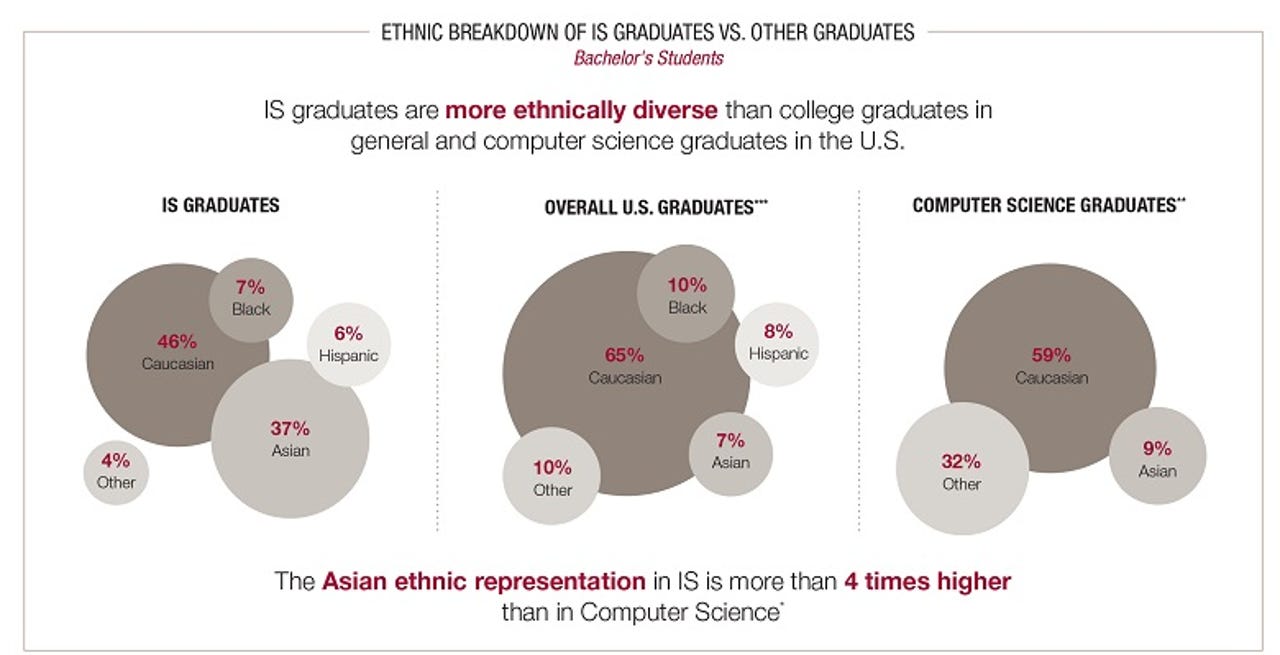Want tech diversity? Think information systems majors over computer science


Source: Temple University's IS Job Index
Information systems (IS) graduates are more diverse and in just as much demand as their computer science peers, according to the latest IS Job Index report from Temple University.
The point is worth noting since there is so much emphasis in making the computer science field more diverse. While IS isn't perfect on the diversity scale, the Temple survey highlights how future leaders of the information systems--and the developers in computer science programs--are making strides.
First, it's worth noting the difference between IS and computer science. Most information system programs reside in business schools with a few being standalone within computer science departments.
The Temple IS Job Index is based on data from 30 universities across the U.S. including Carnegie Mellon, Temple, University of Connecticut, Iowa State, Clemson, James Madison, University of Texas, and Arizona State. Disclosure: I'm on the Advisory Board for the Temple's Fox IT Advisory Board.
Based on more than 1,680 respondents the average undergraduate in IS is 23 and graduate is 28.
A few key points:
- Minorities and women do better in IS compared to computer science. The 2015 graduating class in IS is 66 percent male in master's program with 34 percent female. Across the U.S. 59 percent of master's degrees go to females. However, the IS percentage of female graduates in master's programs tops the 20 percent awarded in computer science.
- The 37 percent Asian ethnic representation in MIS programs is 4 times higher than bachelor computer science.
- MIS graduate program students are more ethnically diverse than the U.S. graduate population.
- Male students still land higher salaries than female counterparts especially at the graduate level.
- Staying in college longer, or doing a double major or minor, doesn't help placement or salary.
- Bachelor salaries are highest in the south.
Let's roll a few slides from the report: